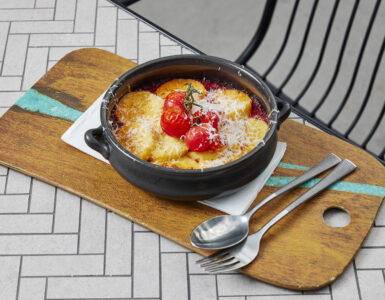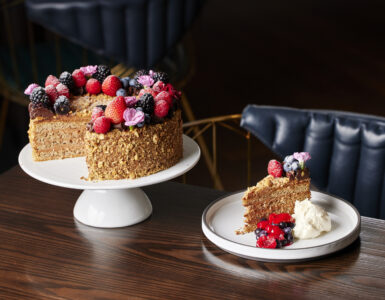Addy Lam, sommelier at BLACK Bar and Grill, shares his favourite cold-weather wines.
Wine, like food, is seasonal, and just as we swap salads out for soups when the weather turns cold, so too do we look for different drops to drink with our dinner.

Addy Lam, sommelier at BLACK Bar and Grill at The Star in Sydney, says that in his experience most people tend to want a big, juicy, heavy Barossa shiraz when it’s cold and wintery. However, this Aussie classic isn’t Lam’s first choice – particularly at mealtimes.
“For me, in winter especially, food is the most important object on the table, so you should choose a wine that is a little bit lighter, weight-wise, than what you’re eating,” he says.
“If you ordered steak at BLACK Bar and Grill and asked me for a wine recommendation, I would suggest a GSM (a blend of grenache, shiraz and mouvedre grapes) or a cool-climate cabernet sauvignon – something not too heavy. You want to be able to taste the meat.”
A cabernet from a producer in Coonawarra, South Australia, or Henty in Victoria is more food-friendly than a rich, high-alcohol shiraz because of its acidity structure, says Lam. The acid will cut right through fatty meats or other dishes, like lasagne, making them more palatable, whereas a heavier wine will overpower rather than complement the food, and make you feel sluggish.
Still, that’s not to say a big, juicy shiraz isn’t the perfect wine to curl up with in front of an open fire either before or after dinner.

If you’re more of a white wine drinker, Lam recommends choosing a fuller-bodied white or something with a little more texture throughout the winter months. In the Australian category, he suggests a rich, buttery chardonnay from somewhere like Margaret River or the Adelaide Hills, or an aged Marsanne from a classic producer like Tahbilk. While seafood and shellfish are perfect partners with these wines, their texture and richness mean they’ll also stand up against roast chicken, pork and Asian dishes. If you’re looking for something European to keep you warm in winter, Rhone Valley varietals work particularly well. This includes Marsanne, viognier and, if you’re lucky enough to get your hands on a bottle, Châteauneuf-du-Pape Blanc – a rare but delicious French wine commonly made with grenache blanc, roussanne, clairette blanche and bourboulenc grapes. A straight grenache blanc is a good backup if you can’t. Like the Aussie suggestions, these wines will pair well with seafood, shellfish, poultry, pork and spice.
“And never forget a good sauternes,” says Lam, “a good sauternes is always good in winter.” Match it with salty foods like cheese and oysters or drink it alongside, or in place of dessert.







